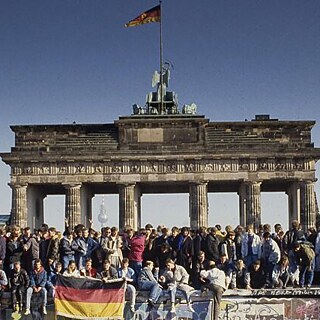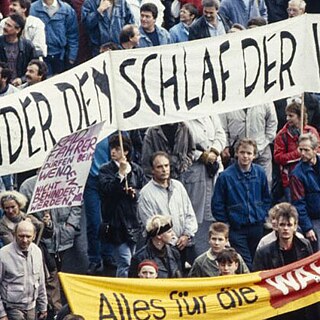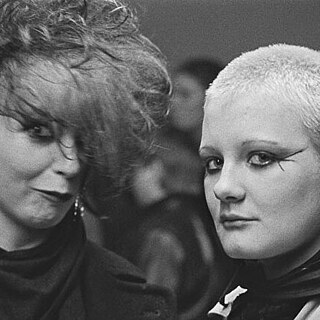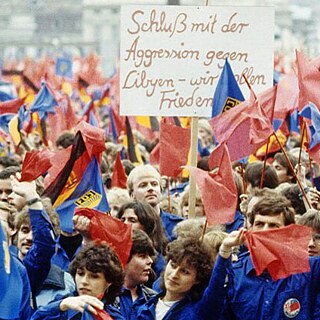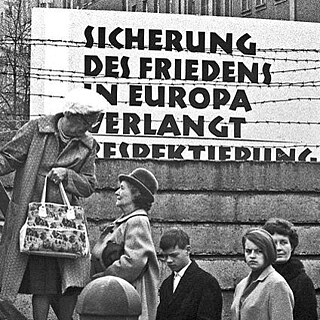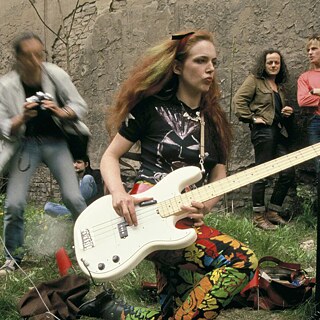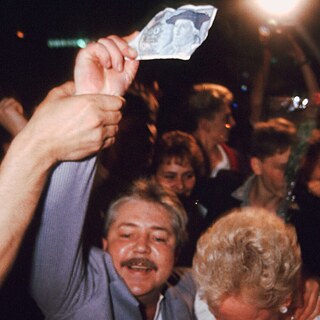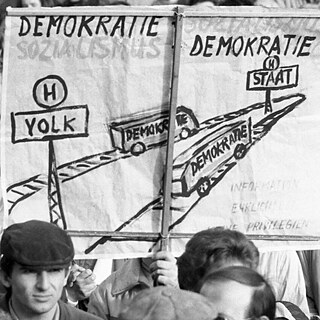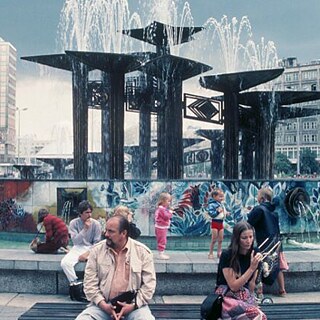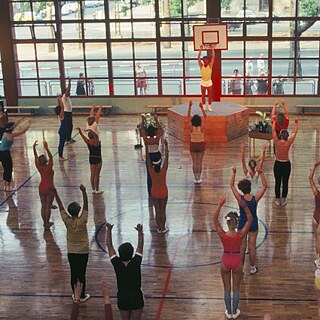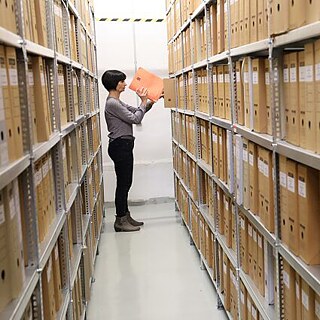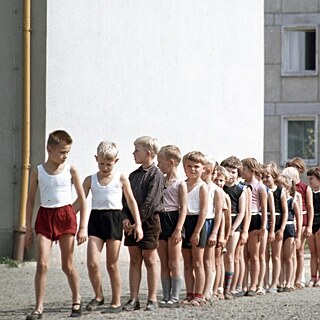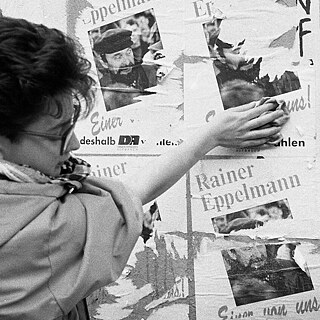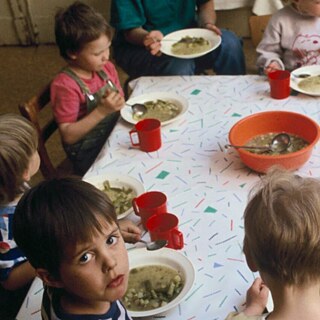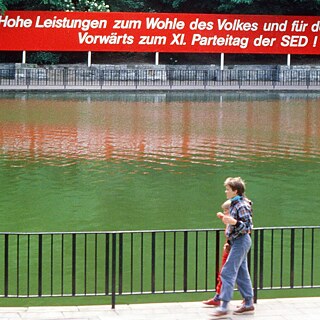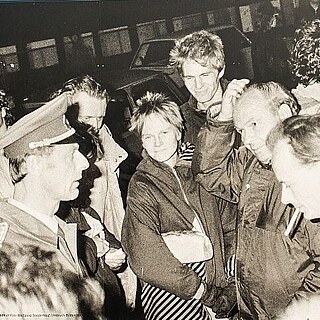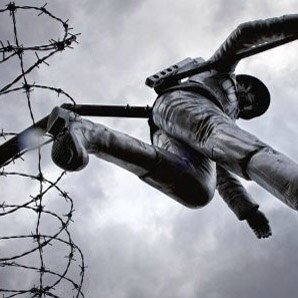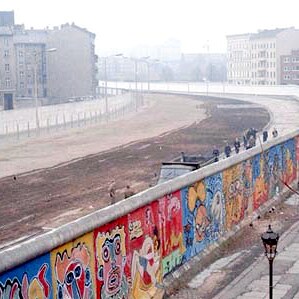
Show description in:
Chapter 11Commonalities and differences FRG vs GDR: Social Justice
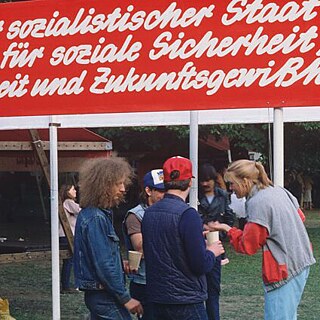
East and West Germany had different ideas about social justice. In the GDR, the idea prevailed that all citizens were equal and had the same right to goods, work, education etc. Social justice in the FRG meant that merit, equal opportunity and need were to be considered next to the equal access principle.
Characteristics
Language level
Target group
Skill

Part of the series Divided Germany, the wall and reunification
26 materials
Description
East and West Germany had different ideas about social justice. In the GDR, the idea prevailed that all citizens were equal and had the same right to goods, work, education etc. Social justice in the FRG meant that merit, equal opportunity and need were to be considered next to the equal access principle. Juxtaposing these systems, one may ask whether social justice exists at all. After Reunification, transitional justice concerns added another dimension to social justice: Questions about how to address abuses and violent crimes committed by people in the name of building a Communist society in the GDR- and how to heal- became important. These conversations are still ongoing.
These videos can give some answers.
1. WHAT IS JUST?
A lecture with Anna Laura Edelhoff, PhD, about four different notions of justice. Intended for children, but ideal for young-at-hearts- as well.
2. PREFABRICATED HOUSING AND SOCIAL JUSTICE
Outward social class and status indicators were hardly visible in the GDR, testifying to a certain socialist egalitarianism. There was little social segregation, for instance, in the prefab concrete housing estates that sprung up around East German towns and cities during the Honecker era (1970s-80s). Videofootage taken by East German citizens.
3. WEST GERMAN ATTITUDES TOWARDS DEMOCRACY
Were people critical of democracy in West Germany?
4. SOCIAL JUSTICE AFTER REUNIFICATION
After Reunification: What did it mean to have worked for the Stasi?
5. PERSECUTION AND ITS AFTERMATH
We asked Mario Röllig: Why is your history of persecution in the GDR important? What can it help us understand?
6. WORK AS A GRASSROOTS ACTIVIST IN GERMANY
Noa K.Ha, PhD tells us what her work as a grassroots activist dealing with migration issues in Germany looks like.
7. HOW DOES ONE BECOME A SOCIAL JUSTICE ORGANIZER?
“Social justice organizer“ is such a big label, but what does it actually mean? Mahdis Azarmandi, PhD, takes us through her personal journey of activism, first around issues of migration and later as a queer-of-color organizer in Berlin.
ADDITIONAL SOURCES
FOR GERMAN LEARNERS: EQUAL RIGHTS FOR WOMEN IN THE FRG/GDR
When did women become equal spouses in the GDR/FRG? What about maternity protection? Was it possible to have an abortion and what rights did women have in case of a divorce?
Source: Mitteldeutsche Zeitung TV
HOW FAR HAVE WOMEN COME IN GERMANY?
It hasn't been that long since women in Germany weren't allowed to work, drive a car or open a bank account without their husband's permission. And even today, there are quite some inequalities when it comes to men and women. But how aware are Germans about that? DW's Anne-Sophie Brändlin hit the streets of Berlin to find out.
Source: Deutsche Welle
PARTNER
Bundesstiftung Aufarbeitung der SED-Diktatur (Federal Foundation for the Reappraisal of the SED Dictatorship), German Consulate General New York, German American Partnership Program (GAPP), American Association of Teachers of German (AATG), Transatlantic Outreach Program (TOP) and Spark for German.
These videos can give some answers.
1. WHAT IS JUST?
A lecture with Anna Laura Edelhoff, PhD, about four different notions of justice. Intended for children, but ideal for young-at-hearts- as well.
2. PREFABRICATED HOUSING AND SOCIAL JUSTICE
Outward social class and status indicators were hardly visible in the GDR, testifying to a certain socialist egalitarianism. There was little social segregation, for instance, in the prefab concrete housing estates that sprung up around East German towns and cities during the Honecker era (1970s-80s). Videofootage taken by East German citizens.
3. WEST GERMAN ATTITUDES TOWARDS DEMOCRACY
Were people critical of democracy in West Germany?
4. SOCIAL JUSTICE AFTER REUNIFICATION
After Reunification: What did it mean to have worked for the Stasi?
5. PERSECUTION AND ITS AFTERMATH
We asked Mario Röllig: Why is your history of persecution in the GDR important? What can it help us understand?
6. WORK AS A GRASSROOTS ACTIVIST IN GERMANY
Noa K.Ha, PhD tells us what her work as a grassroots activist dealing with migration issues in Germany looks like.
7. HOW DOES ONE BECOME A SOCIAL JUSTICE ORGANIZER?
“Social justice organizer“ is such a big label, but what does it actually mean? Mahdis Azarmandi, PhD, takes us through her personal journey of activism, first around issues of migration and later as a queer-of-color organizer in Berlin.
ADDITIONAL SOURCES
FOR GERMAN LEARNERS: EQUAL RIGHTS FOR WOMEN IN THE FRG/GDR
When did women become equal spouses in the GDR/FRG? What about maternity protection? Was it possible to have an abortion and what rights did women have in case of a divorce?
Source: Mitteldeutsche Zeitung TV
HOW FAR HAVE WOMEN COME IN GERMANY?
It hasn't been that long since women in Germany weren't allowed to work, drive a car or open a bank account without their husband's permission. And even today, there are quite some inequalities when it comes to men and women. But how aware are Germans about that? DW's Anne-Sophie Brändlin hit the streets of Berlin to find out.
Source: Deutsche Welle
PARTNER
Bundesstiftung Aufarbeitung der SED-Diktatur (Federal Foundation for the Reappraisal of the SED Dictatorship), German Consulate General New York, German American Partnership Program (GAPP), American Association of Teachers of German (AATG), Transatlantic Outreach Program (TOP) and Spark for German.
Downloads
Ungleicher Zugang zu Bildung - eine Antwort
Teil von:

© Pixabay
A2 B1
